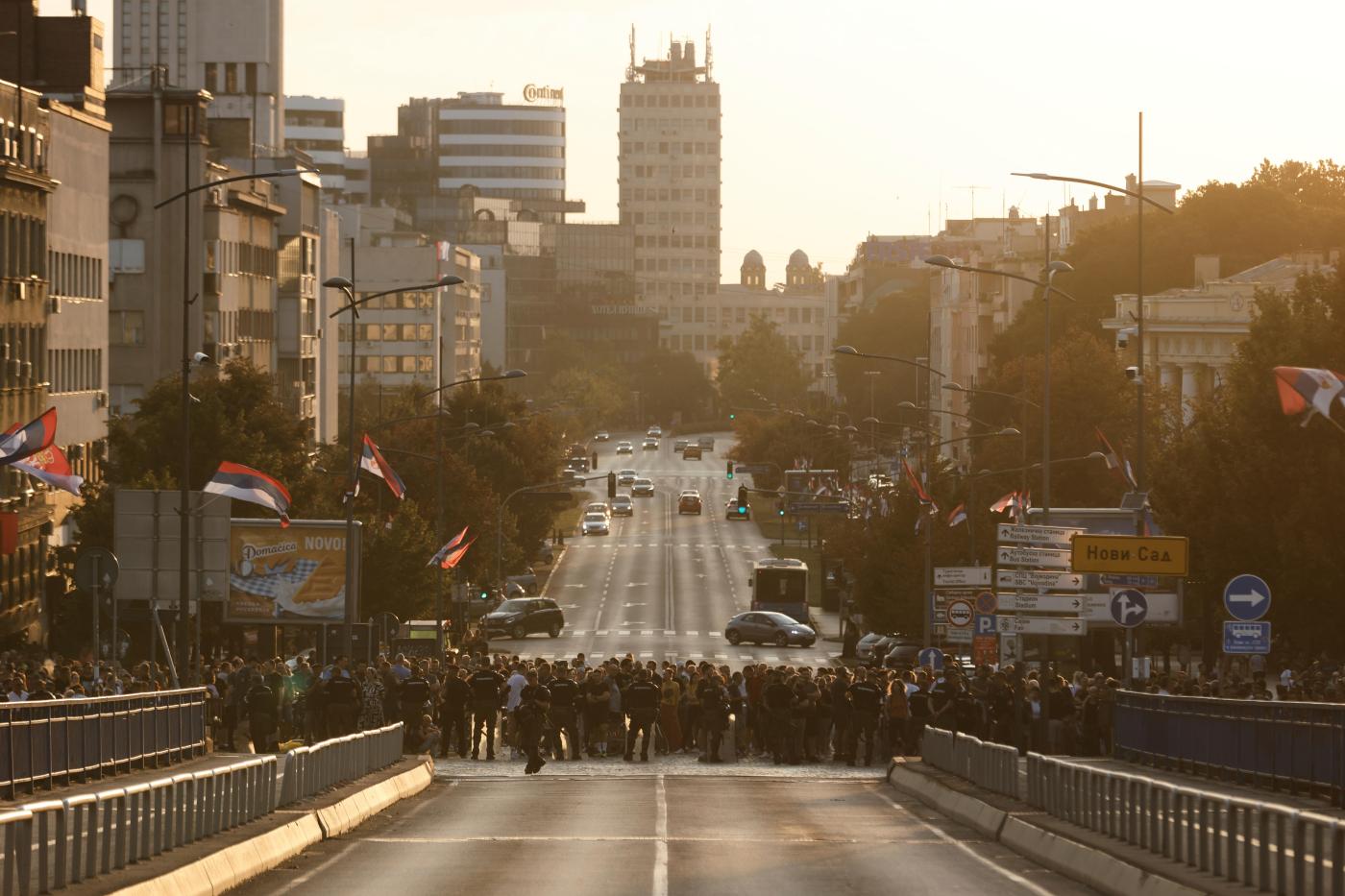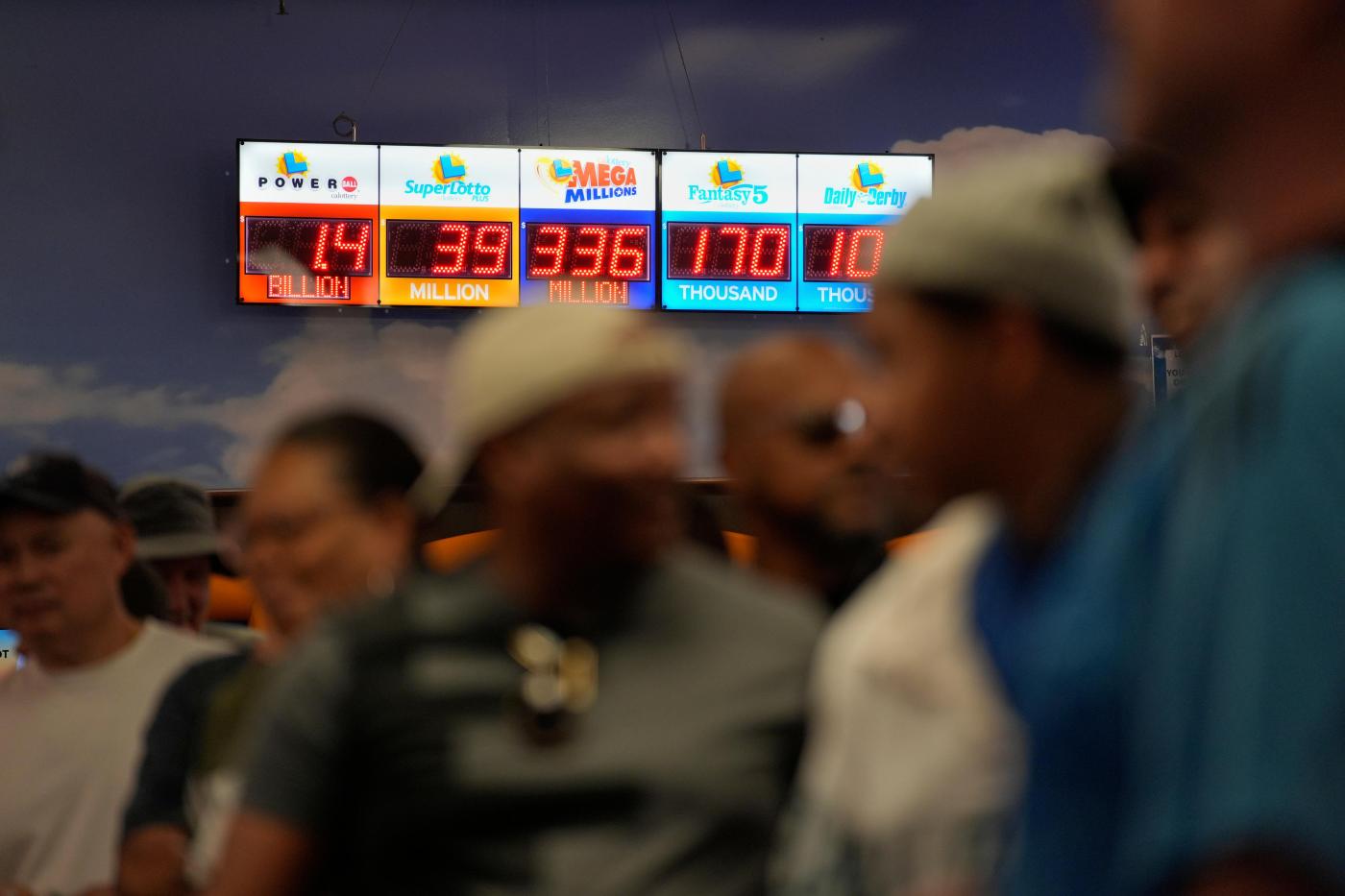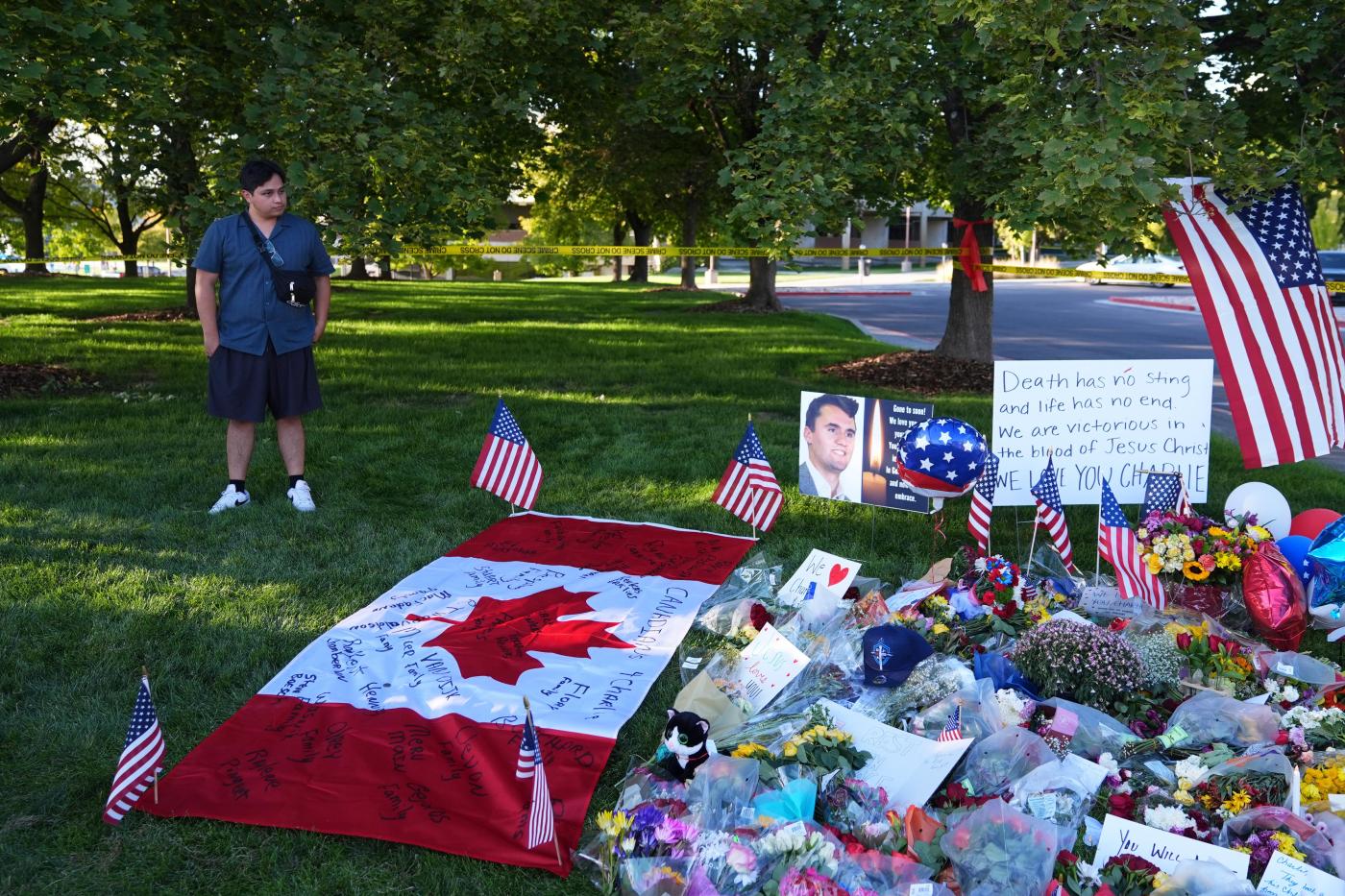BELGRADE, Serbia (AP) — Anti-government protesters and supporters of President Aleksandar Vucic held parallel rallies throughout Serbia on Saturday, reflecting a deep political crisis in the Balkan country following more than 10 months of protests against the populist government.
Vucic’s Serbian Progressive Party recently started organizing its own demonstrations to counter persistent student-led protests that have challenged the president’s firm grip on power in Serbia.
Related Articles
California temporarily blocks Trump policy barring some immigrants from food banks, health care, Head Start and more
Opinion: We can’t argue our way out of political conflict, but we have options
Letters: Front-page story didn’t capture full measure of Charlie Kirk
Letters: In the current climate, how can nation increase kindness?
Housing policy clash sparks insults, costs East Palo Alto councilmember regional board seats
No major incidents were reported at the rallies held in a number of cities and towns with police separating the two camps. Brief scuffles erupted in the capital, Belgrade, when riot police pushed away anti-government protesters as Vucic joined his supporters in a show of confidence.
Vucic said that “people want to live normally, they don’t want to be harassed and want to be free.”
Vucic has refused a student demand to call an early parliamentary election. He has instead stepped up a crackdown on the protests, which have drawn hundreds of thousands of people in the past months. More than 100 university professors have been dismissed, while police have faced accusations of brutality against peaceful demonstrators.
Vucic has accused student-led protesters of being “terrorists” who are working against their country under orders from the West. He hasn’t offered any evidence for such claims.
The protests first started in November last year after a concrete canopy collapse at a renovated train station in the northern city of Novi Sad killed 16 people. It ignited a nationwide movement seeking justice for the victims and blaming corruption-fueled negligence for the tragedy.




